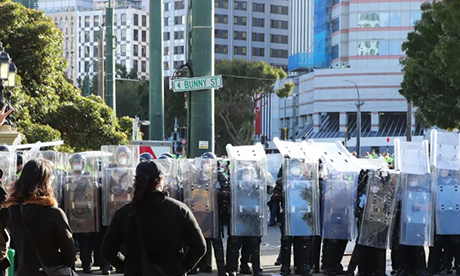New Zealand, a country long regarded as a high-trust nation, faces challenges that threaten its social fabric, according to a discussion paper released by Koi Tū: The Centre for Informed Futures.
Economic, political and climate-related stresses, coupled with the proliferation of mis- and disinformation, are eroding the cohesiveness of society.
The document has shed light on the growing “polarisation” within New Zealand communities.
Dr Anne Bardsley, deputy director of Koi Tū, emphasises that despite the country’s historical reputation as a highly cohesive and high-trust society with a robust democracy, various factors are contributing to increased anxiety and concern among certain segments of the population.
These factors include high-income inequality, unaffordable housing, personal safety concerns, economic instability and the pressing issue of climate change.
Sir Peter Gluckman, director of Koi Tū, emphasises the urgent need to strengthen both institutional and social trust. He asserts that when social cohesion is undermined or threatened, individuals experience heightened levels of anxiety, anger and frustration.
Trust in the government and fellow citizens dwindles as a result.
Sir Peter stresses that the government’s operations and communication strategies play a pivotal role in either alleviating or exacerbating the situation. For a democratic society to remain resilient and cohesive, both institutional and social trust must be nurtured, as these concepts are mutually dependent.
Importance of engaging in global conversations
The authors of the discussion paper also highlight the importance of engaging in global conversations regarding the governance and accountability of artificial intelligence (AI). They express concern over the global reluctance to establish universally agreed-upon standards, appropriate governance frameworks and mechanisms for accountability.
This reluctance has facilitated the misuse of social media platforms and technologies such as AI and deep fakes, leading to the dissemination of misinformation and further undermining trust.
A notable example cited by Sir Peter and Dr Bardsley is the 2022 protest onParliament grounds, where weaponised narratives propagated through social platforms created divisions within communities.
In light of these challenges, the authors call upon New Zealand to prioritise efforts aimed at strengthening both institutional and social trust. They stress the need for effective management of new and disruptive technologies like AI.
Moreover, they emphasise the significance of participating in global dialogue to establish governance frameworks and accountability mechanisms for AI.
According to the paper, by addressing these issues proactively, New Zealand can work towards restoring and reinforcing the trust that forms the foundation of its cohesive and inclusive society.
Sources
Informed Futures Media Release
Additional readingNews category: Great reads, New Zealand.




